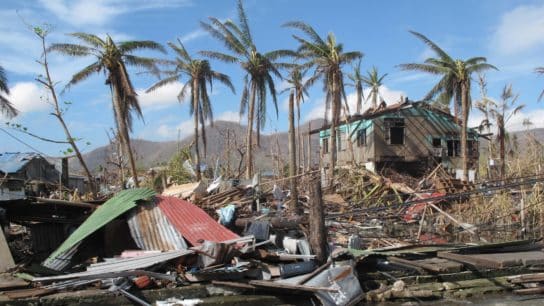In today’s world, the allure of celebrity culture is undeniably strong. The glamorous lives of stars are constantly on display, influencing millions. However, this fascination often overshadows a critical issue: the significant environmental impact caused by their lifestyles and careers. From extravagant concert tours to frequent private jet use, the entertainment industry contributes massively to carbon emissions. While some celebrities are beginning to take steps toward sustainability, a larger movement is necessary to hold these influential figures accountable for their environmental impact.
—
Many celebrities live in a bubble of privilege, often indifferent to the environmental damage they cause. Their luxurious lifestyles, marked by frequent travel and extravagant consumption, contribute significantly to carbon emissions and other environmental issues. Concert tours, for example, are a staple of the entertainment industry, drawing in millions of fans worldwide. However, the environmental cost is staggering.
A prime example is Taylor Swift’s Eras Tour, which has been a global sensation. In just one month, the American singer’s tour flights emitted approximately 393 metric tons of carbon dioxide (CO2). To put this into perspective, the average person’s annual carbon footprint is around 5 metric tons. The logistics of moving equipment, staff, and artists across countries and continents require substantial air travel, one of the most carbon-intensive forms of transportation. The need for large-scale infrastructure, including lighting, sound systems, and temporary stages, adds to the carbon footprint. While the economic benefits and cultural significance of these tours are evident, the environmental costs cannot be ignored.
Another significant issue with celebrities is their use of private jets, which, while epitomizing luxury and convenience, come at a high environmental cost. Private jets emit substantially more CO2 per passenger than commercial flights. A private jet produces approximately 2 metric tons of CO2 per hour of flight, compared to about 0.2 metric tons of CO2 per passenger for the same duration on a commercial flight.
While some may argue that private jets are used for the safety of celebrities, it is evident that these flights are often unnecessary. Many celebrities have used their private jets for extremely short trips that could easily have been done by car, with no valid justification. For example, Kylie Jenner took a private jet for a flight that lasted just 17 minutes. Similarly, rapper Drake took a 14-minute flight three times in a month. In 2022, Swift topped the list “the worst private jet CO2 offenders” created by sustainability marketing firm Yard, after her jet was found to have flown 170 times that year, leading to 8,293.54 tonnes of emissions – 1,184.8 times more than the average person.
Climate activists have repeatedly denounced celebrities for their excessive and reckless use of private planes. In June, two Just Stop Oil climate activists were arrested after cutting through a fence at a London airport and spray-painting private jets orange.
Lack of Accountability and Hypocrisy
Despite the glaring environmental impact of their actions, many celebrities fail to take responsibility. Some even go to great lengths to avoid accountability. Swift, for instance, faced backlash for her excessive jet usage. Instead of addressing the issue, she threatened legal action against a student who tracked and publicly shared her private jet flights.
This reaction underscores the disconnect between her public persona and the private actions that contradict her supposed commitment to environmental causes. Such responses highlight the lack of genuine accountability among many celebrities, who often prioritize their image over meaningful environmental responsibility.
Celebrities are also often accused of hypocrisy. Leonardo DiCaprio, a vocal advocate for environmental conservation, also faced criticism for his use of private jets. In 2016, he used a private jet to travel from Cannes to New York to accept an environmental award, only to fly back to France the next day. The blatant contradiction between his advocacy and actions highlights the hypocrisy that often goes unchallenged in celebrity culture.
Fandoms’ Complicity
Fandoms play a significant role in perpetuating the environmental damage caused by celebrities. Their uncritical support and adoration enable celebrities to continue their reckless behavior unchecked.
Not only do they ignore their favorite celebrities’ massive carbon footprints, but they also contribute to the problem by buying into their brands. This support only amplifies the celebrities’ influence and ego, encouraging them to continue ignoring important environmental issues.

An example is the endless purchases of merchandise, much of which is produced in unethical and environmentally damaging conditions, contributing to environmental degradation and labor exploitation.
Besides this, attending concerts and other large-scale events without questioning their ecological footprint is detrimental to the environment. For example, the annual Coachella Valley Music and Arts Festival, attended by numerous celebrities, generates an estimated 107 tons of waste each day. The contradiction is stark: celebrities who preach about climate change on social media are often the same ones participating in events that leave behind massive amounts of trash.
Time For Change
The environmental impact of celebrities is a crisis that demands immediate action. Fandoms have a responsibility to stop enabling the destructive behaviors of their idols. Turning a blind eye is no longer an option. It is time to channel admiration into accountability and transform the way we engage with celebrity culture. Only by demanding real, measurable change can we mitigate the severe environmental impact of these larger-than-life figures and work towards a more sustainable future for all.
We must leverage their immense power and influence to our advantage, compelling them to use their platforms to drive positive change. We can no longer dismiss celebrities as mere entertainers; with our planet in a crisis, they must take responsibility and act as catalysts for environmental and social reform.
How can I contribute to a more sustainable planet?
- 🗳️ Vote for Climate Action: Exercise your democratic rights by supporting candidates and policies that prioritize climate change mitigation and environmental protection. Stay informed with Earth.Org’s election coverage.
- 👣 Reduce Your Carbon Footprint: Make conscious choices to reduce your carbon footprint. Opt for renewable energy sources, conserve energy at home, use public transportation or carpool, and embrace sustainable practices like recycling and composting.
- 💰 Support Environmental Organizations: Join forces with organizations like Earth.Org and its NGO partners, dedicated to educating the public on environmental issues and solutions, supporting conservation efforts, holding those responsible accountable, and advocating for effective environmental solutions. Your support can amplify their efforts and drive positive change.
- 🌱 Embrace Sustainable Habits: Make sustainable choices in your everyday life. Reduce single-use plastics, choose eco-friendly products, prioritize a plant-based diet and reduce meat consumption, and opt for sustainable fashion and transportation. Small changes can have a big impact.
- 💬 Be Vocal, Engage and Educate Others: Spread awareness about the climate crisis and the importance of environmental stewardship. Engage in conversations, share information, and inspire others to take action. Together, we can create a global movement for a sustainable future.
- 🪧 Stand with Climate Activists: Show your support for activists on the frontlines of climate action. Attend peaceful protests, rallies, and marches, or join online campaigns to raise awareness and demand policy changes. By amplifying their voices, you contribute to building a stronger movement for climate justice and a sustainable future.
For more actionable steps, visit our ‘What Can I do?‘ page.
This story is funded by readers like you
Our non-profit newsroom provides climate coverage free of charge and advertising. Your one-off or monthly donations play a crucial role in supporting our operations, expanding our reach, and maintaining our editorial independence.
About EO | Mission Statement | Impact & Reach | Write for us














